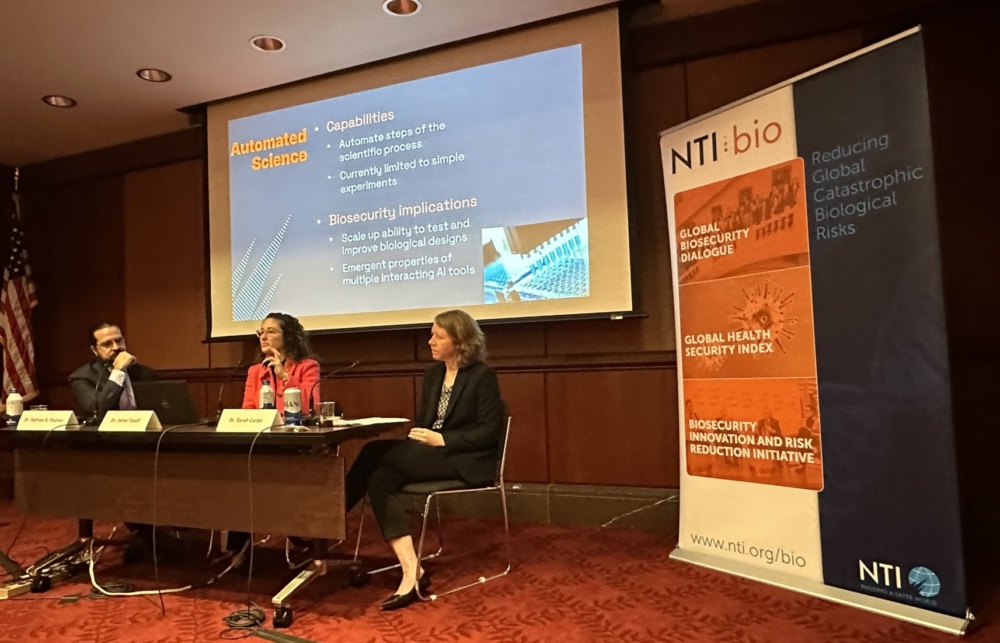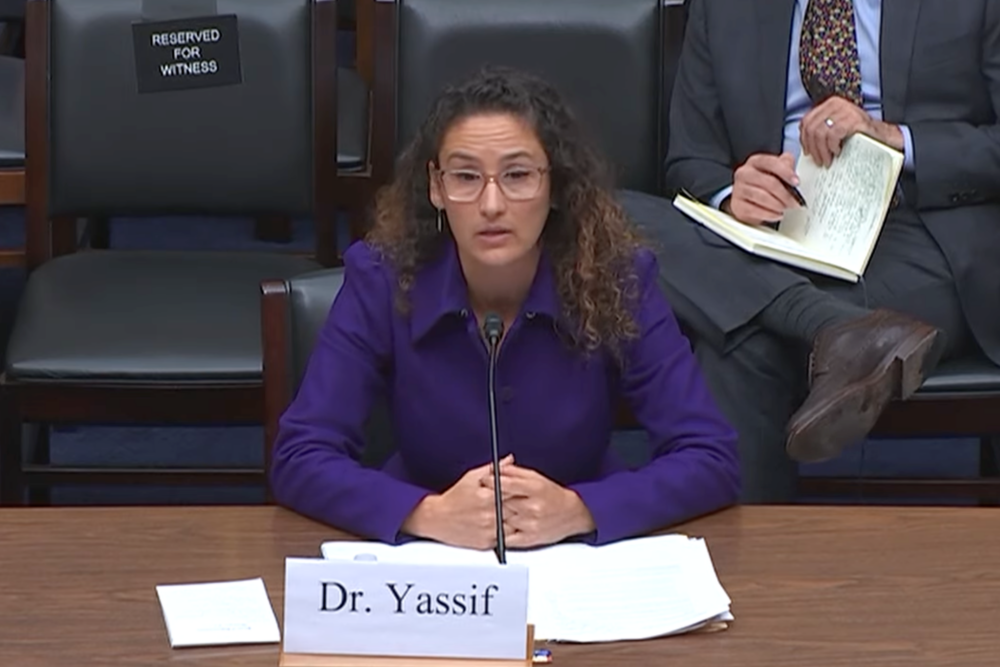Report Recommends New Governance Approaches and Technical Safeguards to Prevent Misuse with Catastrophic Consequences
Amid significant advances in artificial intelligence (AI), a new NTI | bio report, The Convergence of Artificial Intelligence and the Life Sciences: Safeguarding Technology, Rethinking Governance, and Preventing Catastrophe, released today in London on the margins of the UK government’s AI Safety Summit, recommends urgent action and oversight by governments, industry, and the scientific community to reduce risks associated with AI-enabled capabilities to engineer living systems.
AI-bio technologies offer tremendous benefits for modern bioscience and bioengineering. They can support the rapid development of vaccines and therapeutics, enable the development of new materials, foster economic development, and help fight climate change. However, AI tools and capabilities that enable the engineering of living systems also could be accidentally or deliberately misused to cause significant harm, which could result in a global biological catastrophe.
“This is uncharted territory,” said report co-author Sarah R. Carter, Ph.D. “AI-bio capabilities are developing rapidly, and the rate of change will only increase. To keep up, policy makers will need to consider fundamental new approaches to governance that are more agile and adaptable.”
To develop the report’s recommendations, authors Carter, Nicole Wheeler, Ph.D., Sabrina Chwalek, Christopher R. Isaac, and Jaime M. Yassif, Ph.D. drew on interviews with more than 30 individuals with expertise in AI, biosecurity, bioscience research, biotechnology, and the governance of emerging technologies to evaluate the risks associated with this novel technology, assess the biosecurity implications, and discuss options for safeguarding rapidly advancing AI-bio capabilities.
“There is a range of evolving AI tools that could be abused. Information about how to manipulate biological systems is now easily accessible to a wide population via large language models, through applications like ChatGPT, while biological design tools could be misused to create new toxins, components of viruses, or other harmful biological materials,” Wheeler explained. “AI is also automating elements of scientific work, and this technology is poised to advance dramatically and scale rapidly in the coming years.”
The authors recommend six urgent steps at the national and international levels to reduce biological risks associated with new AI-bio technologies without unduly hindering scientific advances. They include:
- Establish an international “AI-Bio Forum” to develop and share AI model guardrails that reduce biological risks
- Develop a radically new, more agile approach to national governance of AI-bio capabilities
- Implement promising AI model guardrails at scale
- Pursue an ambitious research agenda to explore additional AI guardrail options
- Strengthen biosecurity controls at the interface between digital design tools and physical biological systems
- Use AI tools to build next-generation pandemic preparedness and response capabilities
“Accelerating advances in AI-enabled capabilities to engineer living systems are driving dramatic changes in the global biosecurity and pandemic preparedness landscape,” Yassif said. “I am encouraged by the agenda set forth for the UK AI Safety Summit this week, and the executive order from the Biden administration released today—both of which include important biosecurity elements. Once the dust settles from this week’s discussions, we will need to roll up our sleeves and get to work—so we can put into place effective safeguards to protect this technology from misuse, while harnessing its beneficial applications.”
Read the full report on NTI’s website here.
About NTI
NTI is a nonprofit global security organization focused on reducing nuclear and biological threats imperiling humanity.
This report is part of the work of NTI Global Biological Policy and Programs (NTI | bio) to strengthen biotechnology governance and biosecurity.
About the Authors
Sarah R. Carter, Ph.D., Principal, Science Policy Consulting
Nicole E. Wheeler, Ph.D., Group Leader, The University of Birmingham
Sabrina Chwalek, Technical Consultant, NTI Global Biological Policy and Programs
Christopher R. Isaac, M.Sc., Program Officer, NTI Global Biological Policy and Programs
Jaime Yassif, Ph.D., Vice President, NTI Global Biological Policy and Programs




